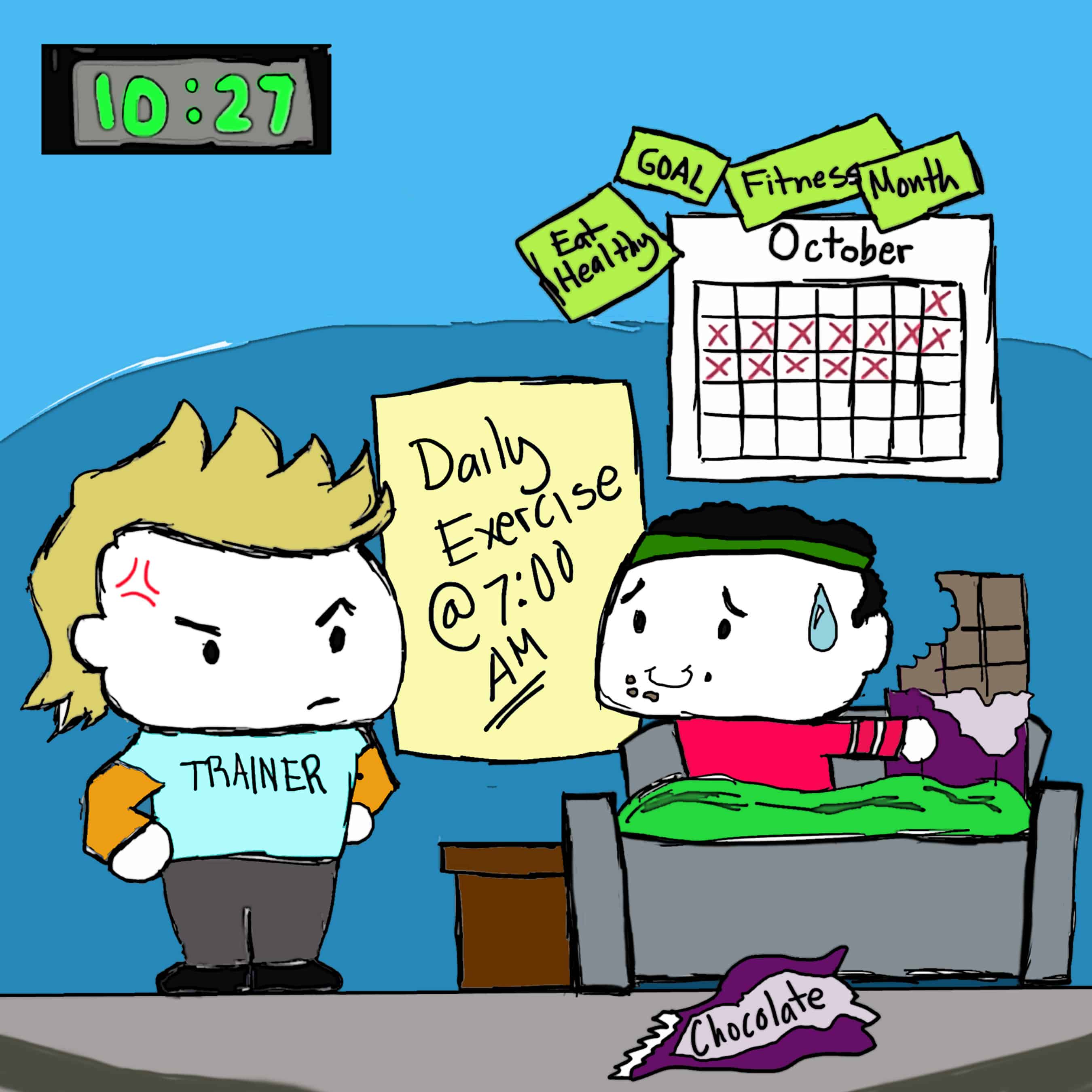Within the health and fitness community there is a matter of controversy surrounding the different techniques that health conscious people employ to enjoy the foods they love while still maintaining their fitness goals.
Cheat days are one strategy. On a cheat day, a person participates in planned days of indulgence, where food and drinks that are usually prohibited by a healthy diet are back on the table. Cheat meals are another strategy where, for a few meals per week, the person will break with their diet and eat what they like.
Depending on the person and their goals, specific eating plans or diets can be useful tools for people to achieve certain body fat percentages and to gain lean muscle. Diets are a necessity for people with food intolerances, allergies, and certain illnesses.
Research shows that caloric restriction can cause a drop in leptin levels. Because of this drop, decreasing caloric intake for prolonged periods of time can lead to a greater potential for uncontrolled binge eating down the road. Studies indicate that increases in caloric consumption, specifically carbohydrates, could help to avoid decreasing leptin levels and prevent uncontrolled eating.
In other words, extreme dieters who are deprived of calories and crucial macronutrients — whether that be fats, proteins, or carbohydrates — are likely to indulge in foods uncontrollably during and after their diet ‘ends,’ which often leads to a cycle of ‘yo-yo’ dieting.
Extreme, calorically restrictive, low carb or low fat eating plans over an extended period of time can lead to the psychological and physiological desire for more calories or more of a certain macronutrient that the individual is lacking, which can be fulfilled in the form of a cheat meal or cheat day. This is because extreme eating plans are not sustainable in the long run, causing feelings of deprivation and lack of energy to rise over and above levels of self-control.
Although an entire cheat day of eating poor quality foods is preferred by some, the majority of health and fitness experts strongly advise against it.
Cheat meals vary in how they are incorporated into peoples’ lifestyles. Some people can have one cheat meal and get right back on track with eating healthier food for their next meal. For others, one cheat meal can lead to an entire day or even multiple days of eating poorly.
Each person responds differently though, which is why exercise programs and nutrition plans must be individualized. For instance, I feel the strongest and can maintain my body composition the easiest while following a moderate carbohydrate, high protein, and high fat plan in terms of the three macronutrients. If I were to incorporate an entire cheat day every week, which I’ve done in the past, I would have increased water retention and feelings of sluggishness.
Mindlessly consuming high sugar, high fat, and processed foods for a 24-hour period has set me back several days with my eating and nutrition habits, even leading to a cheat weekend or an entire week of poor eating.
After years of experimentation, I have found that one to three weekly cheat meals, of about 500 to 1,000 calories in excess of my typical daily caloric consumption, allow me to stay focused at work and school while still feeling healthy and strong.
Besides allowing for a certain number of cheat meals to incorporate weekly or monthly, another technique I also use is weekly preparing healthy versions of foods, by cooking in bulk and having high protein portable snacks on hand. For example, homemade protein cookies, protein pancakes, egg and veggie frittata, protein bars, and protein shakes are portable and made easily.
One size does not fit all when it comes to finding what works best for you in terms of letting loose a little bit on your eating plan. A terrible thing to do would be to restrict yourself completely from ever eating anything lacking in nutrition and believe that you will be perfect and never slip up.
Eating a balance of foods, with nothing off-limits is the best way to reduce the kinds of cravings that can lead to a cheat day or a freefall circling into binge eating. Set up one to three meals per week instead of an entire day to enjoy your favourite foods, so you don’t feel the need to eat excessively. Stop restricting your food and start enjoying it in moderation, to build a healthy body and a good relationship with your food.


